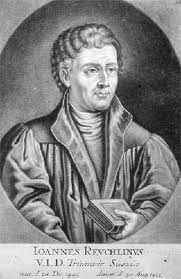“A certain amount of opposition is a great help to a man; it is what he wants and must have to be good for anything. Hardship and opposition are the native soil of manhood and self-reliance.” (John Neal)
 What is true of muscles is true of character. If you want to build your muscles you have to stress them by creating resistance. Whether free weights, isometric exercises, or running a mile, your muscles grow when they have to work against opposition. The same principle is at work within your soul. Your character will only mature in the presence of hardship. This is the clear teaching of Scripture. The apostle James commands us to “consider it all joy when you encounter various trials, knowing that the testing of your faith produces endurance. And let endurance have its perfect result that you may be perfect and complete, lacking in nothing”.
What is true of muscles is true of character. If you want to build your muscles you have to stress them by creating resistance. Whether free weights, isometric exercises, or running a mile, your muscles grow when they have to work against opposition. The same principle is at work within your soul. Your character will only mature in the presence of hardship. This is the clear teaching of Scripture. The apostle James commands us to “consider it all joy when you encounter various trials, knowing that the testing of your faith produces endurance. And let endurance have its perfect result that you may be perfect and complete, lacking in nothing”.
In your preparations for the coming collapse of society, you need to do more than gather supplies and collect resources. You need to prepare your character. You do so by facing adversity head on. Don’t bury your head in the sand when you’re challenged by hardship. Instead, joyfully run toward your trials, knowing that it is by this means that God will cause you to be “perfect and complete, lacking in nothing”.
This Day in Church History
 April 24, 1514 – Johann Reuchlin found not guilty of heresy. To Johann Reuchlin, Luther owed the Hebrew grammar for his Bible translation. But his stand for the right of free access to Hebrew literature, against the protests of Roman Catholic censors, helped open the door for the Reformation. Reuchlin was a Hebrew scholar. But the church wanted to burn all Hebrew books, except for the Old Testament, claiming they were filled with error. Reuchlin appealed to Pope Leo X, asserting that free inquiry into these texts would encourage scholarship and would prepare Christian apologists to resist the errors they contained. The pope agreed. Later, the leaders of the Dominican Order lobbied hard to once again have Reuchlin declared a heretic. This time the pope sided with the Dominicans but in the end suspended the sentence, thereby releasing Reuchlin from those who sought his life. Three years later, in 1517, when Reuchlin learned that Martin Luther had posted his 95 Theses to the chapel door in Wittenberg, Reuchlin is reported to have rejoiced, saying, “Thanks be to God! At last they have found a man who will give them so much to do that they will be compelled to let my old age end in peace.” Reuchlin’s studies provided the foundation for Luther’s and other reformers translations of the Old Testament.
April 24, 1514 – Johann Reuchlin found not guilty of heresy. To Johann Reuchlin, Luther owed the Hebrew grammar for his Bible translation. But his stand for the right of free access to Hebrew literature, against the protests of Roman Catholic censors, helped open the door for the Reformation. Reuchlin was a Hebrew scholar. But the church wanted to burn all Hebrew books, except for the Old Testament, claiming they were filled with error. Reuchlin appealed to Pope Leo X, asserting that free inquiry into these texts would encourage scholarship and would prepare Christian apologists to resist the errors they contained. The pope agreed. Later, the leaders of the Dominican Order lobbied hard to once again have Reuchlin declared a heretic. This time the pope sided with the Dominicans but in the end suspended the sentence, thereby releasing Reuchlin from those who sought his life. Three years later, in 1517, when Reuchlin learned that Martin Luther had posted his 95 Theses to the chapel door in Wittenberg, Reuchlin is reported to have rejoiced, saying, “Thanks be to God! At last they have found a man who will give them so much to do that they will be compelled to let my old age end in peace.” Reuchlin’s studies provided the foundation for Luther’s and other reformers translations of the Old Testament.










